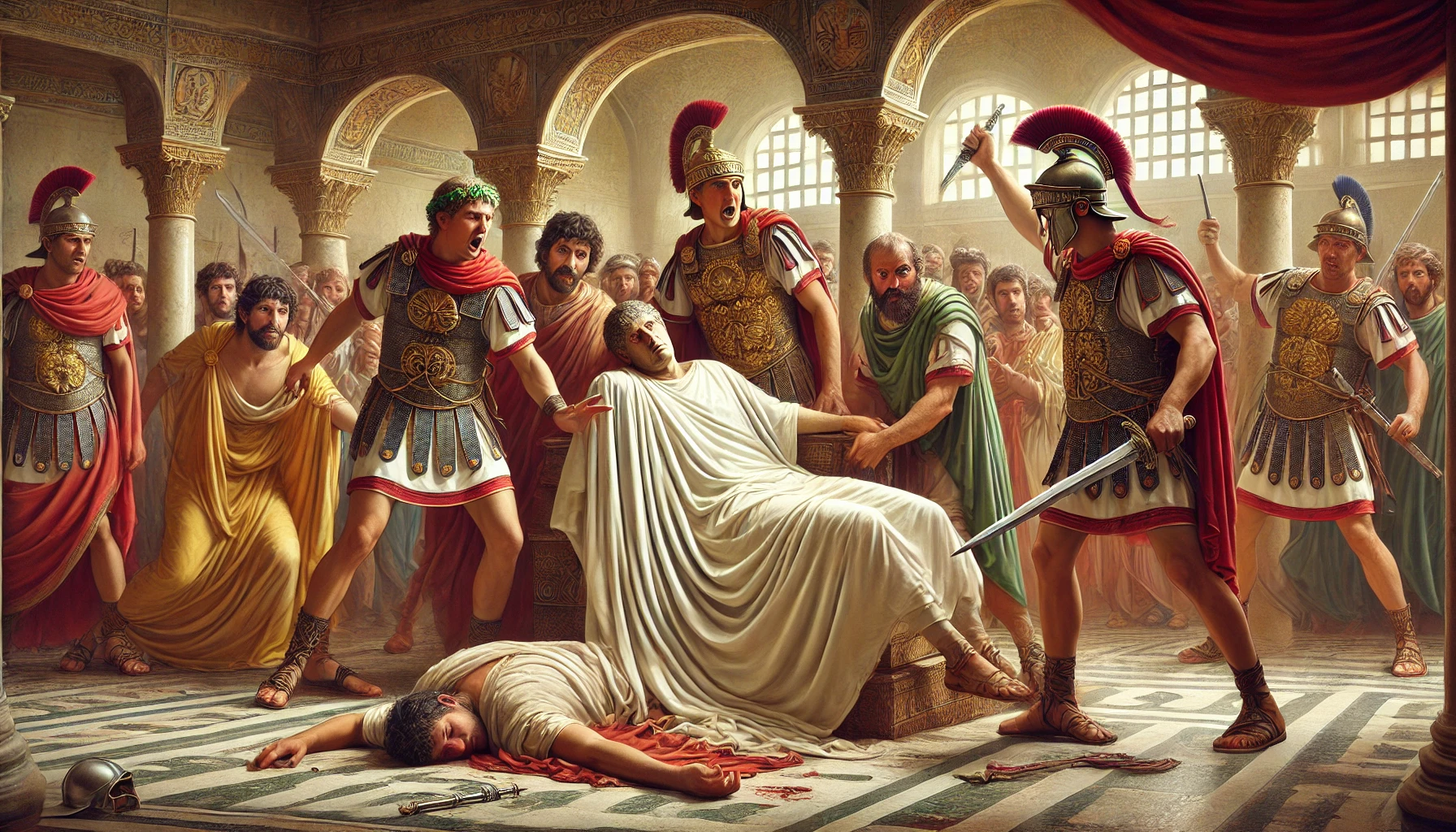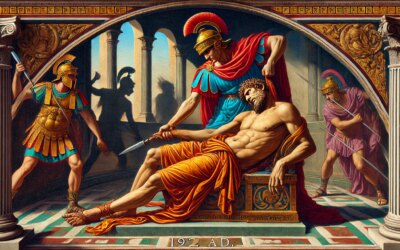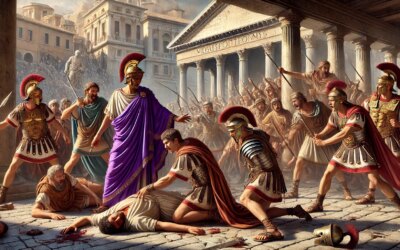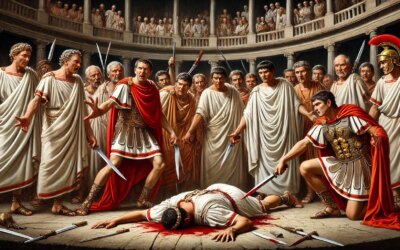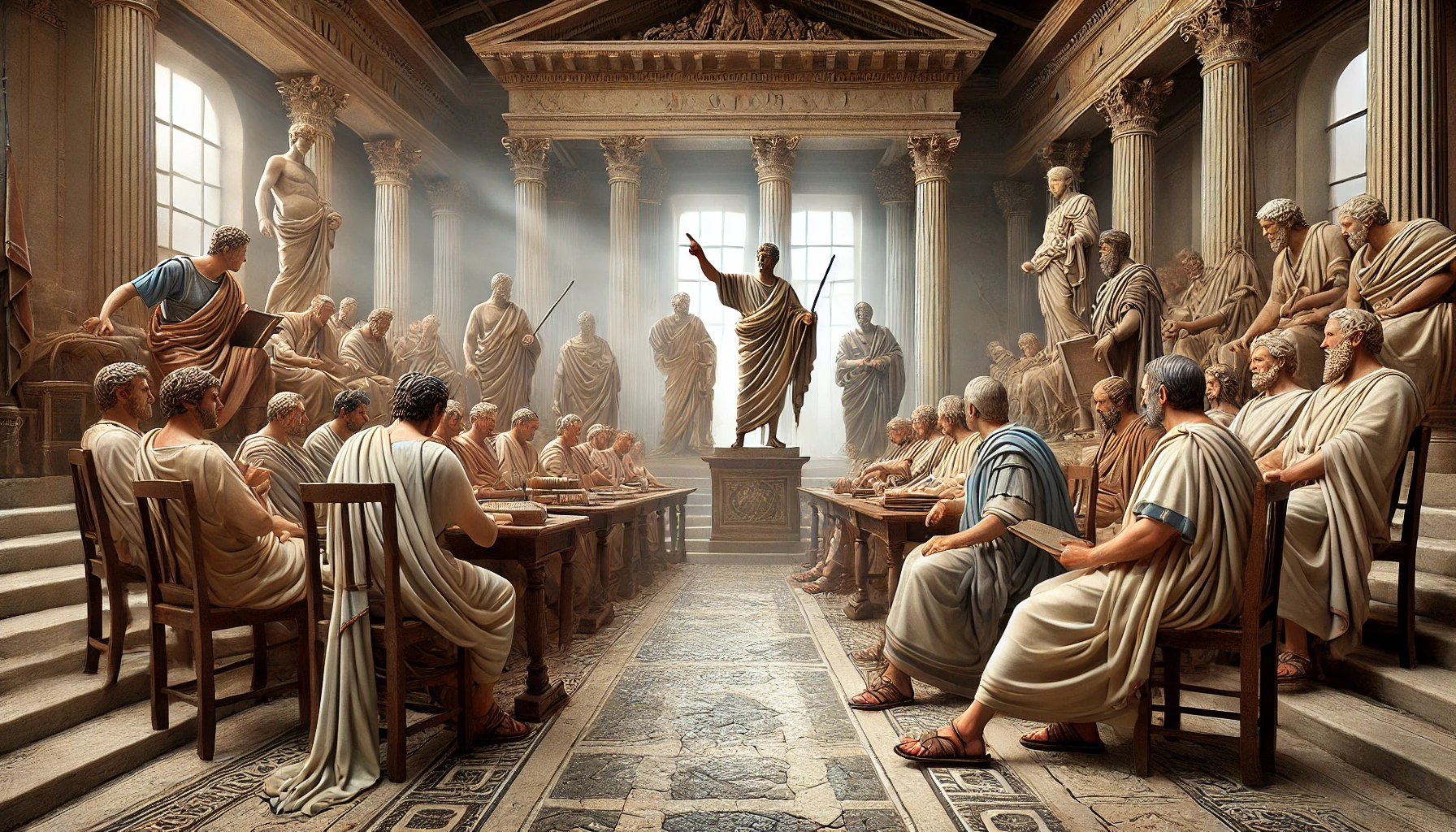Introduction
The reign of Emperor Domitian (81–96 AD) ended in bloodshed when he was assassinated by his closest advisors in a palace conspiracy. His rule had been marked by autocratic policies, paranoia, and increasing distrust among the Senate and elites. On September 18, 96 AD, a group of palace officials and senators struck him down, bringing an end to the Flavian dynasty. This article explores the reasons behind Domitian’s assassination, the conspiracy that led to it, and its impact on the Roman Empire.
Domitian’s Rise and Rule
Domitian was the younger son of Vespasian, founder of the Flavian dynasty, and the brother of Titus. When he ascended the throne in 81 AD, he sought to strengthen imperial authority, expanding his control over Rome’s administration, military, and finances. While his rule brought economic stability and extensive public works, his autocratic leadership and increasing reliance on informers alienated the Senate and aristocracy.
Growing Opposition and Conspiracy
By the mid-90s AD, Domitian’s increasing paranoia led to purges of senators, military officers, and even members of his own family. His secret police arrested and executed perceived enemies, further eroding support among Rome’s elite. The final conspiracy involved key figures close to him, including his chamberlain Parthenius, praetorian prefects, and even his wife, Domitia Longina, who feared for her own safety.
The Assassination
On the morning of September 18, 96 AD, Domitian was lured into an ambush in his palace chambers. According to contemporary accounts, a palace official faked an injury to conceal a dagger, while other conspirators, including freedmen and senators, launched their attack. Domitian attempted to resist, but he was ultimately stabbed multiple times and left for dead.
The Aftermath and the Rise of Nerva
Following Domitian’s assassination, the Senate swiftly declared Nerva as the new emperor, marking the beginning of the Nerva-Antonine dynasty. The Senate, eager to erase Domitian’s legacy, engaged in damnatio memoriae, ordering the destruction of his statues and inscriptions. However, Domitian remained popular among the army, and his death did not bring immediate stability.
Conclusion
Domitian’s assassination was a pivotal moment in Roman history, highlighting the dangers of absolute rule and senatorial opposition. While his reign was marked by paranoia and repression, his contributions to Rome’s infrastructure and administration were undeniable. His death paved the way for a new era of emperors, yet it underscored the fragile balance of power in imperial Rome.

